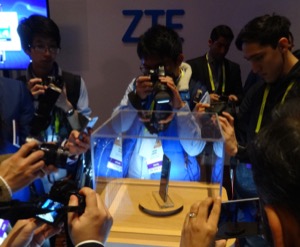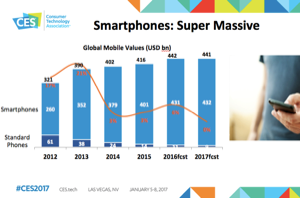Rosenworcel back in line for seat on the FCC

How long will she have to wait this time?
Even with three members of the Federal Communications Commission on stage together at CES in Las Vegas this afternoon, the big news is still coming out of Washington. Jessica Rosenworcel was renominated for another term on the FCC by president Obama yesterday, although it’s by no means certain that her U.S. senate confirmation will fare any better than it did the last time.
Rosenworcel’s first term as one of the designated democratic commissioners timed out at the end of 2016, despite the fact that she had been nominated for a second term in 2015.… More

![By Monsoleiiil (Own work) [GFDL (https://www.gnu.org/copyleft/fdl.html) or CC BY-SA 3.0 (https://creativecommons.org/licenses/by-sa/3.0)], via Wikimedia Commons](https://www.tellusventure.com/images/2017/1/pacman.jpg)





![By cjuneau (IMG_5046-1) [CC BY 2.0 (https://creativecommons.org/licenses/by/2.0)], via Wikimedia Commons](https://www.tellusventure.com/images/2016/12/rodeo_clown.jpg)

